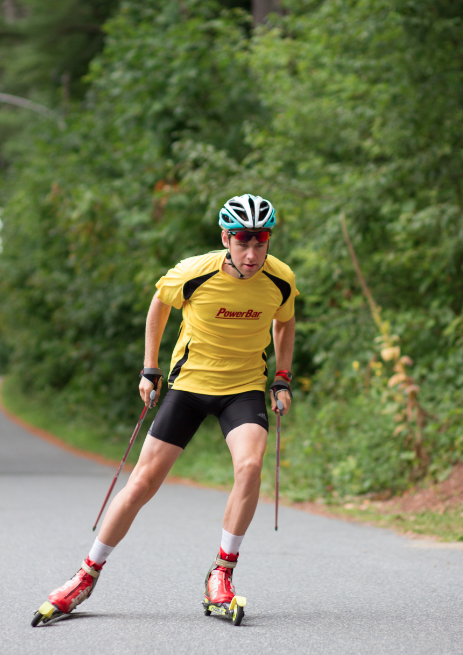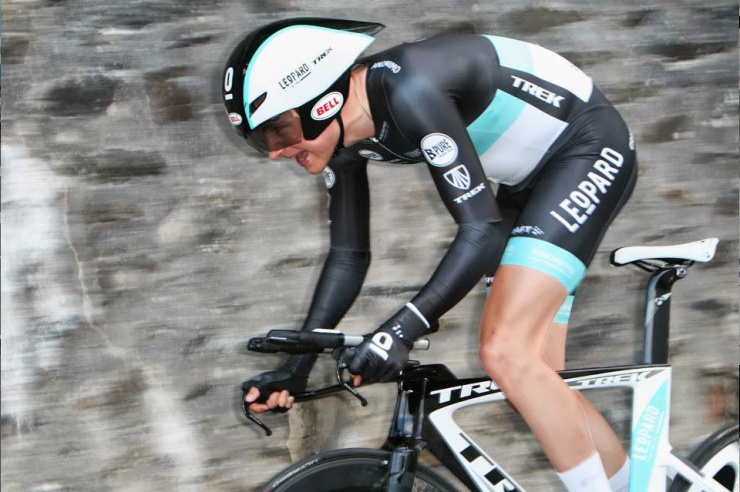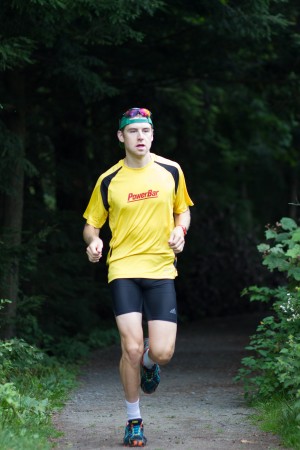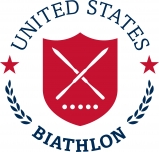
Max Durtschi is goal-oriented individual. So when the Sun Valley native retired from professional cycling in 2014, he decided that he needed a new endeavor.
That endeavor became biathlon.
It’s no surprise that Durtschi returned to nordic skiing. Under the guidance of coach Rick Kapala, he found success on the national and international level as a junior skier.
However, by the time Durtschi reached his senior year of high school he had started to explore other avenues of his athleticism.
An avid biker in the summers, Durtschi raced in the 2009 Junior National Championships and walked away with two titles in the Road Race and the Criterium. Not only did he win both races, he did it with a fractured right hand.
After his two national championships, Durtschi began to race professionally and moved to Boulder, Colo. to train for cycling full-time.
He was a member of the U.S. National Team for the next four years, and had the opportunity to train both domestically and abroad.
Durtschi spent his first two seasons riding for Garmin-Cervelo’s continental program. While he was primarily based in Boulder, he rarely spent time in the U.S. as he was racing in Europe for most of the year.

After his two seasons with Garmin-Cervelo, Durtschi made the move to Europe so that he could be closer to the action. Last year he was part of the Leopard-Trek cycling team and was based in Lucca, Italy. Of the 11 nationalities boasted by the Trek team, Durtschi was the only American.
Durtschi said his experience as a professional cyclist was one he would never forget.
“It was a great experience,” he said in a phone interview. “I got to race in North and South America, Europe, Africa, and Asia. I got to meet and spend time with a lot of great people.”
Cycling was also a learning opportunity for Durtschi. Not only did he continue to discover the joys of of the sport, but he also learned Italian, French and some Dutch.
He also began to understand more about himself as an athlete. When confronted with a variety of different attitudes toward training, Durtschi realized the importance of being in tune to his personal needs.
“The way the different nationalities approach the sport and training and racing is very different than what I grew up with. It really enforces the need to be true to yourself and to trust in your own preparation and process on race day,” he explained.
While Durtschi was very grateful for all that his cycling career had given him over the years, something was missing.
“The focus of the past five years had been cycling and I was ready to experience new things,” Durtschi said. “I was ready to be a college student, I wanted to get back to being in touch with friends and family, and I wanted to get back to being active in a way that wasn’t just solely cycling.”
So when the racing season ended after the fall of 2013, he reevaluated his priorities and made the decision to return to Dartmouth College as a full-time student, where he had been attending school in the off season since 2010.
However, ending his cycling career wasn’t without its challenges. Even as a busy pre-med student studying neuroscience, Durtschi still found himself with ample time on his hands.
“It was daunting at first because my slate was quite open,” Durtschi said. “I’m a goal-oriented person and I wasn’t building up for a season or anything like that so it was a little scary. I focused on school and connecting with people.”
This past winter, Durtschi began skiing frequently once again. Given his status as a former professional athlete whose salary was paid by corporate funds, racing for the Dartmouth ski team was out of the question. However, biathlon had always been in the back of his mind since his junior skiing years and it seemed as if all signs were pointing him in that direction.
“There was a point this winter where some strange, serendipitous things happened that cued me in to give it a shot,” said Durtschi.
He reached out to the U.S. Biathlon Association (USBA) and kept in contact with the organization throughout the rest of the winter and spring.
Then in June, Durtschi was invited to the U.S. Biathlon Talent ID Recruiting Camp in Lake Placid, New York where he enjoyed the training atmosphere created by the team.

Currently, Durtschi is attending the joint U.S. Ski Team and USBA Camp in Lake Placid and will train at the Olympic facility for most of September.
Durtschi said that there are many challenges that come with starting as a new biathlete.
The Idaho native participated in sport shooting from a young age, but the rifle used in biathlon has proved much different. In addition, he said that shooting while skiing is even harder than it looks.
“It’s been a fun challenge and I have a whole new level of respect for biathletes,” he said. “The targets are small and the challenge of shooting when your heart rate is high and you’re breathing hard is a whole different level.”
For now, Durtschi plans to return to Dartmouth in the fall where he will attend classes and continue to train for the upcoming season.
He will then take time off during the winter term in order to focus on his skiing and shooting. While Durtschi has a wealth of competitive experience under his belt, the Dartmouth junior is realistic about his first season racing as a biathlete. His main goals include continuing to improve his shooting and fitness. Once he’s done as much work as he can on those fronts, he plans to see to see where that takes him.
“Right now my two main goals are to keep improving my fitness and improve my marksmanship. I’m hoping that it will lead to some exciting opportunities this winter,” Durtschi said when asked what his goals were for the upcoming season.
“I don’t know what this season will look like. I’m just trying to keep my options open in terms of racing opportunities and hopefully I can make some big improvements this winter,” he said.
Lander Karath
Lander Karath is FasterSkier's Associate Editor from Bozeman, Montana and a Bridger Ski Foundation alumnus. Between his studies at Middlebury College in Vermont, he is an outdoor enthusiast and a political junkie.



10 comments
Ben Arians
September 2, 2014 at 12:09 pm
Actually, being a professional athlete in cycling doesn’t preclude ones participation in a different sport under the NCAA rules. Kind of strange, but true. There have been a number of football players that have played in the NFL who have run track for their universities after the football season was over. There are specifics of course, but technically Max Durtschi could ski for Dartmouth after being a professional cyclist.
prjudge
September 2, 2014 at 4:20 pm
May want to double check the NCAA rules – and I know that there have been some minor revisions but historically being labeled as a “professional” in one sport did have eligibility implications for another. Landmark case in point was Jeremy Bloom (CU football and World Cup skier in Freestyle). NCAA went after him on his football eligibility based on the fact that he was an “amateur” skier but did receive equipment and had some financial contracts attached only to his skiing activities.
http://usatoday30.usatoday.com/sports/college/football/big12/2004-08-17-bloom-ncaa_x.htm
Over the last months there has been some movement as indicated in this follow up article published this spring – almost 10 years on from Blooms situation, however there is still significant issues within the NCAA with respect to cross sport eligibility:
http://www.denverpost.com/colleges/ci_25937289/thoughts-past-jeremy-bloom-holds-hope-future-ncaa
Lander Karath
September 2, 2014 at 4:34 pm
Thanks for your comments, Ben and prjudge. However, I had the point clarified to me after reading both your comments and Max IS prohibited from entering all NCAA sports. This is because he had corporate endorsements and received a salary paid by corporate funding.
This is in sharp contrast to being a professional athlete on a sports team in leagues like the NFL or NBA. Since Max raced under a company name, he is no longer eligible.
I added a few words to the sentence to clarify this point.
highstream
September 2, 2014 at 6:41 pm
It is strange, because being pro athlete on a sports team typically involves corporate endorsements of various kinds, and sometimes for the team itself in terms of equipment.
Ben Arians
September 2, 2014 at 8:51 pm
Yeah, you can’t get much more corporate than the NFL!
Tim Kelley
September 3, 2014 at 6:56 pm
So if racing under a company name makes you ineligible for NCAA competition, what if a collegiate skier works at a sports store in the summer (say AMH or Skinny Raven for example) and does running races with that company’s name on their shirt? They are getting paid by the company and racing under its name. Is that an eligibility no-no? (I hope not, but it seems to be a similar situation to Max’s based on the logic stated above).
John Forrest Tomlinson
September 3, 2014 at 10:56 pm
But but but the NFL is a nonprofit organization!
Ben Arians
September 4, 2014 at 12:27 pm
Gosh, isn’t the NCAA such a well-run, pro-active organization, fair and even-handed in all of its workings, and without any arbitrariness whatsoever in how it functions!
davord
September 4, 2014 at 6:46 pm
Speaking of the NFL, Wes Welker, one of the top players in the league, gets busted for PED use, gets a 4 game suspension. Does anyone realize how pathetic that is? In most Olympic sports you get a 2 year suspension, in mainstream American sports like the NFL, you get a slap on the wrist. Some of the ‘rules’ the NFL has are a joke. Protect your stars, keep them on the field, keep sucking in that money from the masses and keep gaining viewership and profit. You can’t compare the profits that mainstream American sports generate versus the profits that non mainstream American sports make. At least Biathlon and Cross Country play by the rules.
In regards to the NCAA, most, if not all biathletes that attend college and nordic athletes that attend compete for colleges are great students, while too many NCAA athletes in sports like Basketball, Football and Baseball just attend so they can say they attend. After a couple years, they are already turning to pro sports. Not only that, but a lot of the athletes (as is reported every month) get caught for getting ‘gifts’ from various outside sources while still at school. That’s sort of what I’ve been seeing while following NCAA sports the last 10 years.
Pingback: Olympic links: 5 September, 2014 | Frontier Sports